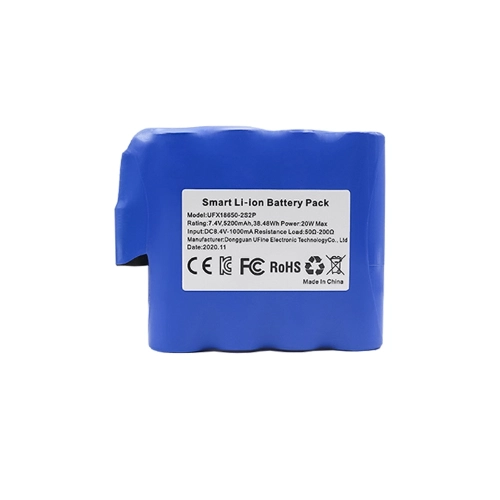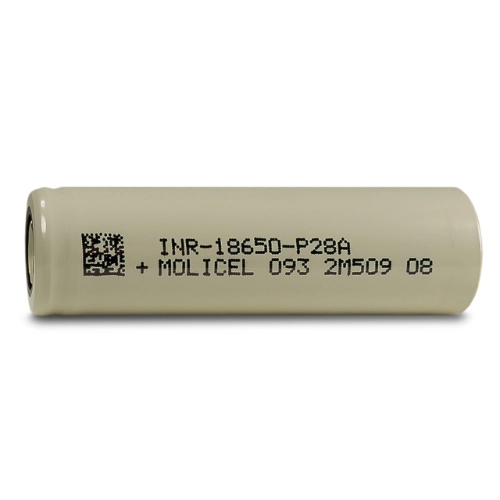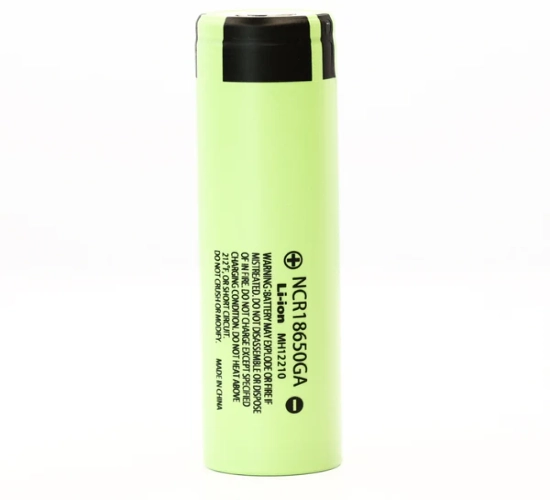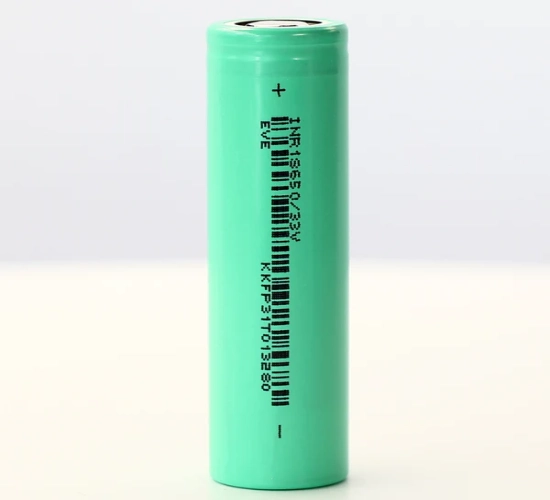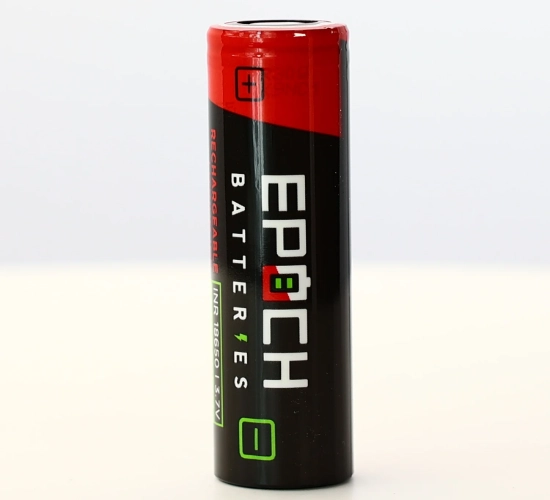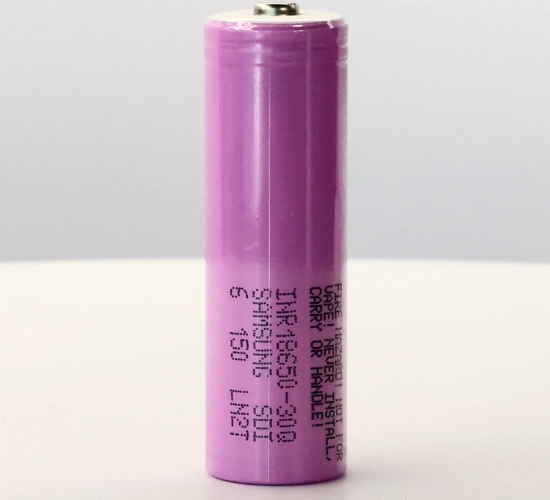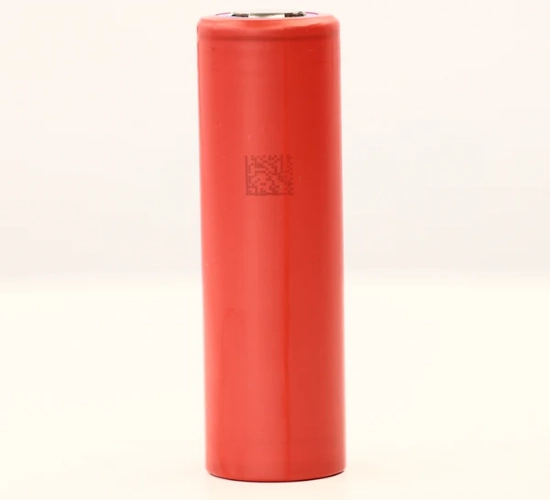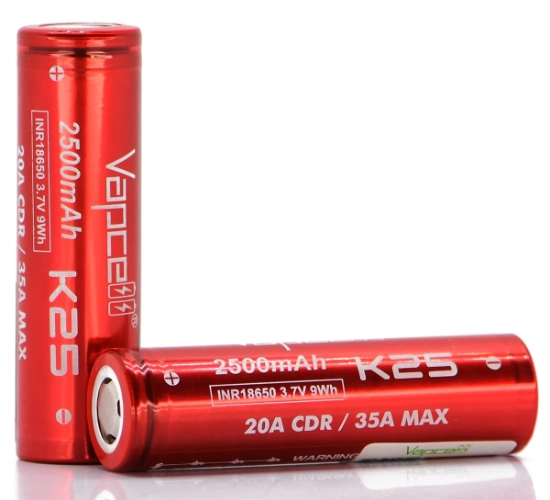Consumers may find that 18650 batteries are the best for all devices. They can be used for many products, including small flashlights, complicated apparatus, and laptops. However, there are so many choices in the 2024 market, which can be bewildering.
This guide provides information on a collection of effective battery options based on various factors, including battery cost and efficiency.
Quick Answer: Best 18650 Batteries in 2025
For most users, the Ufine 7.4V 5200mAh is the top-rated 18650 battery overall due to its unmatched capacity and temperature resistance. Here’s a quick comparison:
| Use Case | Best Battery | Key Spec |
|---|---|---|
| High Capacity | Ufine 5200mAh | 7.4V, -20℃~60℃ |
| Vaping | Epoch 3000mAh | 15A Discharge |
| Power Tools | Vapcell K25 | 35A Pulse |
Part 1. What are 18650 batteries?
18650 Battery represents 18 and 65 dimensions. In diameter, it has been recorded to be 18mm; by length, it is 65mm long. These batteries are widely used in multiple applications: These batteries are found commonly used in many applications:
- Flashlights
- Laptops.
- Vape devices
- Electric vehicles
- Power tools
Flexibility and consistent performance make them a go-to consumer and industrial use option. Their ability to deliver high current and maintain stable voltage makes them particularly valuable for high-drain devices. Beyond everyday gadgets, they are also integral to electric vehicles and renewable energy systems, providing reliable power for personal and industrial use.
Part 2. Top 18650 battery brands In 2025
The following are the key 18650 battery brands in 2025:
- Ufine
- Molicel
- Panasonic
- EVE
- Epoch
- Samsung
- Sanyo
- Vapcell
Artikel Terkait: Top 12 18650 Lithium Battery Companies in the World
Part 3. Top rated 18650 batteries recommendations
2025 Top 8 18650 Batteries Comparison
| Battery | Capacity | Discharge Rate | Best For | Price |
|---|---|---|---|---|
| Ufine 7.4V 5200mAh | 5200mAh | 5A | Laptops, EVs | $$ |
| Molicel 2800mAh | 2800mAh | 35A | Vapes, Power Tools | $$$ |
| Panasonic 3450mAh | 3450mAh | 10A | Flashlights, Medical Devices | $$ |
| EVE 3200mAh | 3200mAh | 10A | Budget Devices | $ |
| Epoch 3000mAh | 3000mAh | 15A | Vaping, Drones | $$ |
| Samsung 30Q | 3000mAh | 15A | Flashlights (Protected) | $$ |
| Sanyo 3500mAh | 3500mAh | 10A | Power Banks, Solar Systems | $$ |
| Vapcell K25 | 2500mAh | 35A (Pulse) | Electric Vehicles | $$$ |
1. Top-rated 18650 Batteries For High Capacity
Ufine 7.4 V 5200mAh 18650 Battery Pack
Specifications
- Nominal voltage: 7.4V
- Capacity: 5200mAh
- Max Charge Current: 5200mA
- Weight: 189g
- Configuration: 2S2P
Pros
- High energy density for prolonged use.
- Can resist temperatures from -20℃ to 60℃.
- Eco-friendly as it has a leak-proof design.
- Long cycle life with over 80% retention after 500 cycles.
Cons
- Moderate internal resistance (less than 150mΩ).
- Slightly bulky for small, compact devices.
- No NTC (temperature control) feature.
2. Best 18650 Batteries for High Discharge Rates
Molicel 18650 Battery
Specifications
- Capacity: 2800mAh
- Maximum Discharge Current: 35A
- Voltage: 3.6V
- Maximum Voltage: 4.2V
- Weight: 46.65g
Pros
- High discharge rate, ideal for power-hungry devices.
- Long cycle life ensures durability over time.
- Compact size for portability without compromising power.
- Versatile use across multiple industries, from tools to EVs.
Cons
- Slightly heavier than standard cells.
3. Most Reliable 18650 Batteries for Longevity
Panasonic 18650 Battery
Specifications
- Capacity: 3450mAh
- Continuous discharge rating: 10A
- Nominal voltage: 3.6V
- Maximum Voltage: 4.2V
- Weight: 46.5g
Pros
- High capacity for extended device usage.
- 10A discharge rating.
- Long-lasting durability.
- Its compact size makes it ideal for portable devices.
Cons
- Unprotected requires external protection for safety.
- Lower discharge rate compared to some high-performance cells.
4. Budget-Friendly 18650 Battery Options
EVE 18650 Battery
Specifications
- Capacity: 3200mAh
- Continuous discharge rating: 10A
- Nominal voltage: 3.60V
- Maximum Voltage: 4.20V
- Weight: 46.22g
Pros
- Grade A cells for consistent performance.
- Good balance between capacity and discharge rate.
- Ideal for moderate to high-demand devices.
- Reliable with matching voltage, resistance, and capacity.
- Compact design for portability.
Cons
- Unprotected, requiring external safety measures.
- Slightly heavier than some alternatives.
5. 18650 Battery For Vaping Devices
Epoch 18650 Battery
Specifications
- Capacity: 3000mAh
- Continuous discharge rating: 15A
- Nominal voltage: 3.6V
- Maximum Voltage: 4.2V
- Weight: 46.07g
Pros
- The high discharge rate of 15A for demanding devices.
- Excellent capacity for more extended usage periods.
- Reliable, consistent performance across multiple applications.
- Rechargeable with durable cycle life.
- The included battery case adds convenience for storage.
Cons
- Unprotected requires additional protection circuits.
- Slightly higher price compared to alternatives.
6. 18650 Battery For Flashlights and Torches
Samsung 30Q 18650 Battery
Specifications
- Capacity: 3000mAh
- Continuous discharge rating: 15A
- Nominal voltage: 3.6V
- Maximum Voltage: 4.2V
- Protection: 4 MOSFETs for overcurrent, overcharge, and short circuit protection
Pros
- Integrated protection circuit enhances safety and reliability.
- High discharge rate ideal for power-hungry devices.
- Long-lasting performance with 3000mAh capacity.
- Rechargeable, supporting multiple cycles.
- The button top design makes it compatible with various devices.
Cons
- Not suitable for e-cig or vape use.
- It’s slightly bulkier due to the button top and protection circuit.
7. 18650 Battery For Power Tools
Sanyo 18650 Battery
Specifications
- Capacity: 3500mAh
- Continuous discharge rating: 10A
- Nominal voltage: 3.6V
- Maximum Voltage: 4.2V
- Size: 18650 (Flat Top)
Pros
- A high capacity of 3500mAh provides extended run times.
- Stable performance under medium-high drain applications.
- It is ideal for flashlights, power banks, and battery packs.
- Durable design with reliable 10A continuous discharge.
- Rechargeable for repeated use.
Cons
- Unprotected, requiring additional protection in battery packs.
8. 18650 Battery for Electric Vehicles
Vapcell K25 18650 Battery
Specifications
- Capacity: 2500mAh
- Continuous discharge rating: 20A
- Max Pulse Discharge: 35A
- Nominal voltage: 3.7V
- Size: 18650 (Flat Top)
Pros
- High 20A continuous discharge, suitable for high-drain devices.
- Compact and versatile 18650 size.
- 35A pulse discharge for short bursts of power.
- It is ideal for demanding applications like power tools.
- Rechargeable for long-term use.
Cons
- Unprotected, it needs external protection in specific applications.
Part 4. Expert tips for choosing the right top-rated 18650 battery
When you are selecting a 18650 battery, here are some expert tips to help you with:
- Consider the discharge rate: Batteries with high-discharge devices are more suitable for vapor mods and power-driven instruments than a standard battery.
- Focus on brand reputation: Customers should stick to certain manufacturers to be safe and reliable when using these cells in critical applications.
- Look for built-in protection: Several 18650s include protection circuits that will stop the charging process when the battery is fully charged, the charge temperature is high, or the circuit perceives that the battery is short-circuited.
- Compatibility matters: As with any other battery, you always need the right battery for your product. The wrong battery for your device may result in reduced performance or destruction.
Part 4. FAQs about top-rated 18650 battery
What is the most efficient 18650 battery?
The Sony VTC6 is considered the most efficient due to its balance of 3000mAh capacity and 15A discharge rate, which makes it ideal for high-performance devices.
What is the rated current for 18650?
Standard 18650 batteries have a rated current between 10A and 30A. High-drain models like the Molicel 35A are best for power tools and vaping.
What is the highest-capacity 18650 battery?
The Ufine 7.4V 5200mAh battery pack offers the highest capacity (2600mAh per cell in 2S2P configuration), perfect for laptops and EVs.
What is the best voltage for an 18650 battery?
The nominal voltage is 3.7V, with a full charge at 4.2V. Devices like flashlights perform best within the 3.6V–4.0V range.
What is the best charging current for 18650?
0.5A–1A is safest for longevity. Fast charging at 2A is possible but may reduce battery lifespan over time.
Are 18650 batteries safe for vaping?
Yes, but only with high-drain models (15A+) like the Epoch 3000mAh. Avoid unprotected batteries in vape mods.
Can I use any charger for 18650 batteries?
No. Use smart lithium-ion chargers (e.g., Nitecore) to prevent overcharging. USB chargers may lack voltage regulation.
How do I dispose of old 18650 batteries?
Recycle at certified e-waste centres. Tape terminals before disposal to prevent short circuits.
Do 18650 batteries work in extreme temperatures?
Most operate between -20°C and 60°C. Ufine’s -20°C rating makes it ideal for cold climates.
Related Tags:
More Articles

How to Choose the Best Floor Scrubber Battery for Commercial Cleaning?
Selecting the ideal floor scrubber battery ensures a long runtime, rapid charging, and minimal maintenance for efficient commercial cleaning operations.
Battery for Blower vs Battery for Leaf Vacuum: Which One Should You Choose?
Battery for blower vs leaf vacuum—learn the key differences in power, fit, and runtime to choose the right battery for your outdoor tool needs.
How to Choose the Right Battery for Blower?
Choosing the right blower battery? Consider voltage, capacity, chemistry & usage. This guide helps match the best battery for peak performance.
How to Choose the Best Insulated Battery Box for Lithium Batteries?
Choosing the Best Insulated Battery Box for Lithium Batteries? Discover key factors such as size, material, and safety for optimal protection and performance.
7 Critical Elements on a Lithium Battery Shipping Label
What must be on a lithium battery shipping label? Learn 7 key elements to ensure safety, legal compliance, and correct handling across all transport modes.
